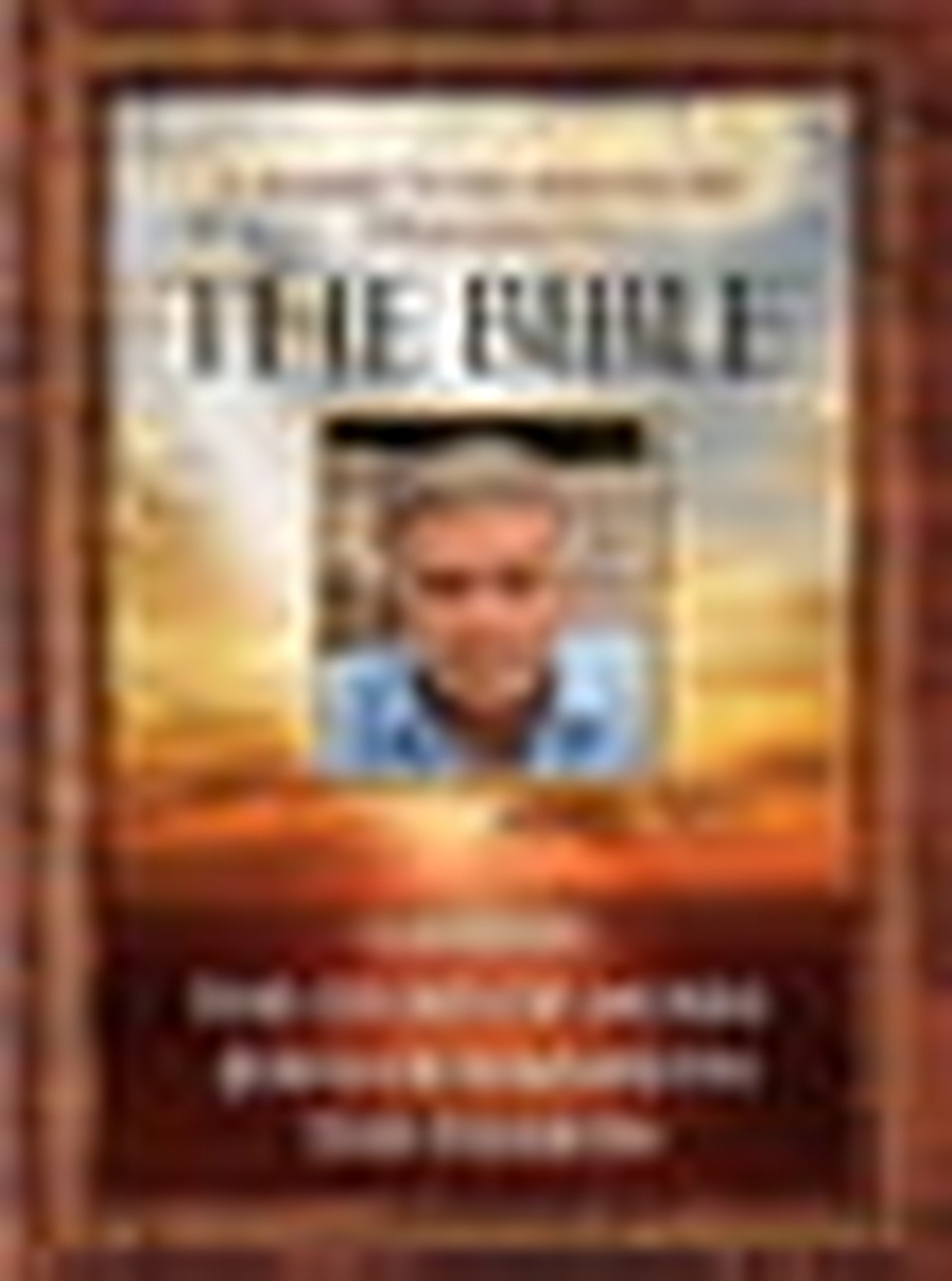The Word is Spoken in Charlton Heston Presents ...

DVD Release Date: March 29, 2011
Rating: Not Rated
Genre: Documentary
RunTime: 206 min. (4 discs)
Director: Tony Westman
Narrator/Host: Charlton Heston
The words of Scripture were originally passed down from parent to child, friend to friend, teacher to student, through an oral tradition of stories and drama. The Word was meant to be spoken aloud. Charlton Heston proves that intent as, in his rich bass voice, he quotes and dramatizes extensive passages from the Bible in this 206-minute, 4-disc DVD collection. Set in the land of Israel, charlton heston presents the bible focuses on the book of Genesis, the life of Moses, the life of Jesus, and the passion and death of Jesus.
Acting as host of the series, Heston reads, recites, and summarizes portions of the holy text, using the King James translation. All the while he stands in an impressive Roman amphitheater in a small Israeli town. Voice-overs illustrate his travels to a variety of locations in Israel, such as the Jordan River, Mount Sinai, Jerusalem, Qumran, and more.
Interspersed with live scenes from Israel are many classic art depictions of biblical events. Think Michelangelo, Ruben, and the like. These paintings and drawings bring a colorful and creative element to the show, diverting the eye to avoid concentrating on Heston’s dramatic monologue too long. The producers collected a vast number of classics to use in all four parts of the collection. In the Genesis segment, beware the high percentage of nude bodies. While very tasteful and, yes, artistic, breasts and backsides appear in many biblical renditions, and the producers here make no effort to hide them. Some viewers, however, may want to hide their children’s eyes occasionally.
Starting with creation, Heston narrates much of the first few chapters of Genesis, focusing on Adam and Eve, Cain and Abel, and the flood. He then moves to Abraham, discussing his covenant with God and Isaac’s almost-sacrifice, then skips over Jacob to concentrate on the story of Joseph. The text flows smoothly as he quotes familiar passages, but he skips whole sections without warning and summarizes some portions of the story. Occasionally this condensing of the biblical text may lead to misunderstanding of what happened exactly when.
Returning to the scene of the movie that put him on the cinematic map—Cecil B. DeMille’s the ten commandments—Heston takes us to Mount Sinai as he introduces the background to the Exodus. He focuses on the first few chapters of the book of Exodus, including the suffering of the Israelites, Moses’ birth and remarkable deliverance, his time in the desert, and his return to confront Pharaoh under God’s command. The Red Sea, the giving of the Ten Commandments, the nation’s wandering in the wilderness, and finally Moses’ death … all these, Heston narrates with feeling and flair.
Here Heston introduces the man over whom “more ink and blood has been spilled than over any other man in history.” With respect and admiration, as well as emotion, Heston narrates many of Jesus’ more famous words—parts of the Sermon on the Mount (from a hill in Galilee), several parables, conversations with his disciples, and more. He stands in the Jordan River as he shares the story of Jesus’ baptism, visits the desert to discourse on Jesus’ temptation, and walks the streets of Jerusalem while admiring Jesus’ encounters with the Pharisees. The location shots enrich this segment more than any other.
The streets and gardens of Jerusalem play a large role in this final segment, as Heston visits now-famous landmarks where many events of Jesus’ last week are purported to have happened. There’s something powerful about walking the Via Dolorosa—the path through Jerusalem that Jesus was thought to have carried his cross—while quoting the scene. Selections from all four Gospels were used interchangeably in an attempt to provide a detailed account. From Good Friday to the Resurrection, from the faithful women in the garden to Doubting Thomas, from the restoration of Peter to the Ascension—Heston’s textured tones breathe life into ancient words, hoping to inspire his viewers.
In this segment, Heston takes time to recount the history of the written scriptures from Jerome to the king james bible of 1611. (The KJV celebrates its 400th birthday this month.) It seems not only to be an educational lecture, but also a defense of his apparent affection for that translation in particular. The poetic and old-fashioned sound of its prose does make for more dramatic theater than, say, the NASB.
Well-received when it was first aired in the early 1990s, this documentary collection combines the beauty and drama of the Promised Land with the very words of God resonating through Heston’s spectacular voice—a truly winning combination.
PREVIEW CLIPS
river jordan
the word
Originally published March 29, 2011.





